HR1: Good, but Not Enough
And what GOP opposition says about the party.
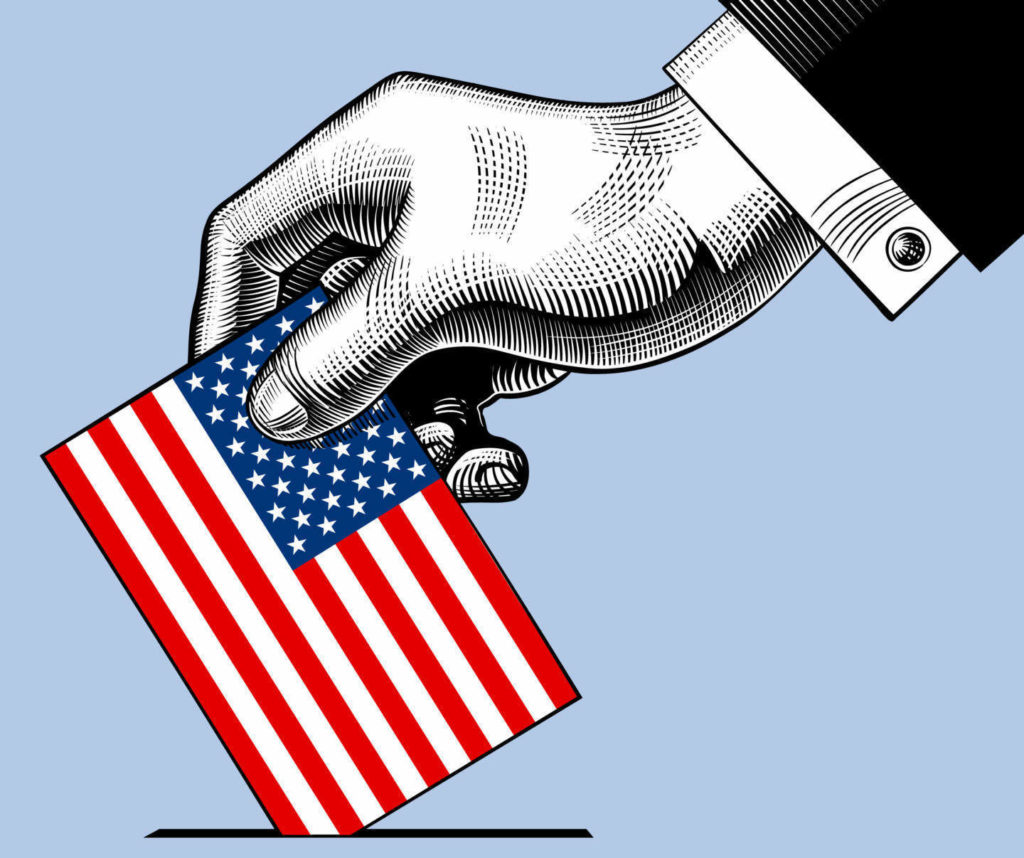
On Wednesday of last week, the US House of Representatives passed HR1, named the “For the People Act” by a vote of 220-210. The entire House Republican caucus voted nay as did one Democrat, Bennie Thompson of Mississippi (two additional Republican Representatives did not vote).
The bill is expansive and contains reforms in three areas: voting, campaign finance, and ethics.
In terms of voting, which to me is the central contribution it could make, the bill includes the following:
- Automatic voter registration with national standards
- National mail-in voting standards and requirements
- State-level independent redistricting commissions
- Creates restrictions and regulations voter roll purges
- Restores voting rights to ex-felons
To summarize, these provisions make it easier for citizens to be registered and to vote, would lead to potentially fairer districts being drawn, and would restore voting rights to persons who had served their time.
In regards to campaign finance, key provisions include:
- Creates new public financing of campaigns for candidates who only take small donations
- Requires PACs to disclose donors
- Requires Twitter and Facebook to disclose who buys ads and how much they paid
- Changes FEC to a five-seat (rather than six-seat) body to stop ties
- Prohibits candidate-super PAC coordination.
The new route for campaign finance could be very important, as it could allow new types of persons to enter politics. I am somewhat skeptical, I must admit, of its ability to make significant changes when candidates who have a list of big-money contributors can still just fund themselves the old way. I have serious doubts, based on previous similar provisions, that PACs and candidates can be made not to coordinate in meaningful ways.
I am in favor of disclosure rules because I would argue that the public’s right to know who is attempting to influence government outweighs the privacy concerns of donors.
The ethics provisions includes following:
- Requires candidates for president to disclose ten years worth of tax returns
- Prohibits members of Congress from using taxpayer funds to pay off sexual harassment and discrimination cases
- Add powers to the Office of Government Ethics (to include greater oversight over foreign lobbyists)
- Creates new ethics code for SCOTUS
I have no specific commentary or analysis on these provisions.
I would note that all of the above lists are not comprehensive.
For more summaries, see:
- WaPo: Here’s what H.R. 1, the House-passed voting rights bill, would do
- Vox: House Democrats’ massive voting rights bill, explained
- Congressman John Sarbanes (D-MD): H.R. 1, the For the People Act, especially the section-by-section summary (which is far more detailed than my summary or press summaries that I have seen).
Now, in broad brushstrokes, one could see philosophical objections to the bill because it nationalizes a host of election-related regulations. The question becomes, however, apart from abstractions about federalism, one about fundamental rights. It would seem to me if there was an area where a “one size fits all” approach might be appropriate, it is in the realm of fundamental rights. Voting is a fundamental right.
Yes, some of these provisions will cause states to incur costs, and the problem of unfunded mandates accrues. But, of course, if those concerned about funding for states, an enterprising member of Congress could certainly propose an amendment to help that problem out.
At the end of the day, this bill clearly would increase voter access to the ballot box via provisions such as automatic voter registration, increased access to mail-in voting, and expanded early voting periods.
It would improve (but by no means fix) representation and competition issues by lessening one key pathology of single-seat district elections by taking gerrymandering out of the toolbox of state legislators.
The campaign finance would potentially make it easier for citizens to run for office (due to the new partial public financing provision) and increase transparency in campaign finance. To be honest, while I do not object to any of those provisions, I do not think them likely to have any profound effects on the role of big money in our elections.
The ethics provision strike me as positive and unobjectionable. (But also the area I have looked at the least).
In general, I would say this: there are some philosophical debates to be had about state-centric election regulations versus national standards or about exactly how campaigns should be financed, but these pale, in my view, to the overall goal of making voting easier for all citizens.
The Republican Party, however, is not supportive.
For example (via WaPo) we have the following.
Minority Leader McCarthy:
“It is not designed to protect Americans’ vote — it is designed to put a thumb on the scale in every election in America, so that Democrats can turn a temporary majority into permanent control,” House Minority Leader Kevin McCarthy (R-Calif.) said during floor debate Tuesday. “It is an unparalleled political grab.”
Former Preisdent Trump
“This monster must be stopped,” he said of H.R. 1 at the Conservative Political Action Conference in Orlando on Sunday. “It cannot be allowed to pass.”
Former Vice President Pence:
“Every single proposed change in HR 1 serves one goal, and one goal only: to give leftists a permanent, unfair, and unconstitutional advantage in our political system,” he said in the piece, which was published in the Daily Signal, a website affiliated with the conservative Heritage Foundation.
In that piece, Pence goes on to write:
The bill would force states to adopt universal mail-in ballots, early voting, same-day voter registration, online voter registration, and automatic voter registration for any individual listed in state and federal government databases, such as the Department of Motor Vehicles and welfare offices, ensuring duplicate registrations and that millions of illegal immigrants are quickly registered to vote.
[…]
Congressional districts would be redrawn by unelected, unaccountable bureaucrats. Illegal immigrants and law-abiding American citizens would receive equal representation in Congress. Felons would be able to vote the moment they set foot out of prison.
Emphases mine.
So, no race-baiting or fear-mongering in his “argument,” yes? After all, we don’t want poor people (welfare offices!) voting. Or, for matter scary Black people (felons!) getting access to their rights. And lest anyone thinks I am being unfair, let me note that the core motivation behind felon disenfranchisement was denying Blacks the right to vote. Further, the sad reality is that big scary Black men are the likely visual image when “felons” are brought up in such a context. There is also the clear implication that one convicted of a felony, a person should no longer be seen as a fellow citizen. How is that just or fair? (But hey, do a crime and you really aren’t people anymore, amiright?). And the illegal immigrant thing feels just thrown in because it is boilerplate when Republicans object to making voting easier.
Pence’s essay cites and draws from this Daily Signal piece that provides 15 Things Conservatives Say Democrats’ Election Bill Would Do. I will not go into the whole list (which is, in my opinion, weak tea based on simplistic hypotheticals at best), but will note numbers one and two (which one would think would be a major problem):
1. Seize the authority of states to regulate voter registration and the voting process by forcing states to implement early voting, automatic voter registration, same-day registration, online voter registration, and no-fault absentee balloting.
Oh, dear. It will make voting easier and uniformly across the country so that all citizens (you know, all those people who were “created equal”) would be treated equally.
Number two:
2. Make it easier to commit voter fraud and promote chaos at the polls through same-day registration, as election officials have no time to verify the accuracy of voter registration information and cannot anticipate the number of voters, ballots, and precinct workers that will be needed.
Oh my, no one wants chaos! I wonder if we could learn from the twenty-one states that had same-day voter registration in 2020 (according to Ballotpedia)? I wonder how much chaos they had?
Also, I will allow that, at least in theory, the more people who vote the increase in probability that an attempt at fraud might take place. Of course, by that theory the only way to prevent the potential for voter fraud is not to have elections (i know, don;t give them any ideas). I would also note that if reform increases turnout, it dilutes the power of fraudulent votes.
If a bill that makes it easier to vote scares you this much, then there is something wrong with your party. Or, perhaps more directly, you are admitting that your party does not value democracy.
At a minimum, it further underscores that the GOP at the moment is a minority party that knows it only gains power if the system provides it structural advantages. It does not want to learn to compete in fair contests; it wants to continue to be unfairly advantaged.
So, as an advocate for democracy, I am in favor of this bill. However, I am not especially confident it will pass the Senate because of the filibuster. The sad irony that the structure of the Senate (which over-represents the GOP) further fueled by a rule that empowers the minority will stand in the way of basic elections reform should not be understated.
Given that not one Republican voted for a popular Covid-19 relief package this week, I am not sanguine about HR1’s chances, since it will require surmounting 60 votes to make it a vote.
I will say that this bill is radically inadequate to solve our country’s democracy problems. I am all for making it easier to vote. And, have some hope that if making it easier to vote does drive more turnout that turnout will, in turn, drive the parties to have to be more competitive.
However, the main problem (although hardly the only one) is that we elect Congress (and most other bodies) via single-seat districts. This hampers representation, in ways that I have written about for years. That system (plus primaries as nomination process) keeps us locked in a rigid two-party duopoly. And, as long as geographic sorting is a thing, single-seat districts will continue to disadvantage the more urban party (especially if the House stays as small as it is relative to the population).
Of course, the slim chances this bill has in passing underscores the herculean task that real reforms (for example here and here) would face.
In short: HR1 puts band-aids on a number of smaller wounds on our democracy but does not perform the surgery needed to truly solve deep problems. I would vote for it were I in Congress but would be under no illusions about how comprehensively it would fix American democracy.

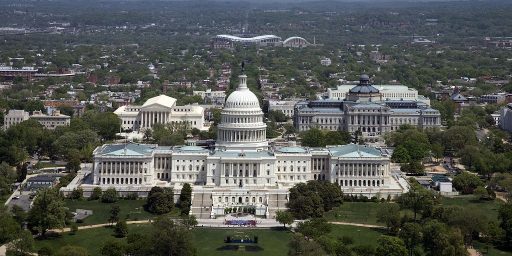
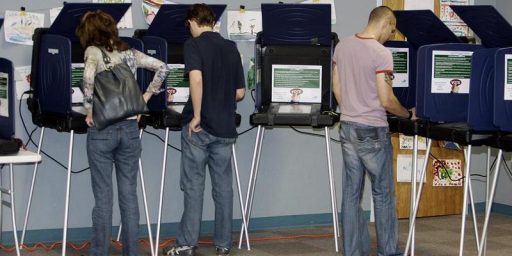

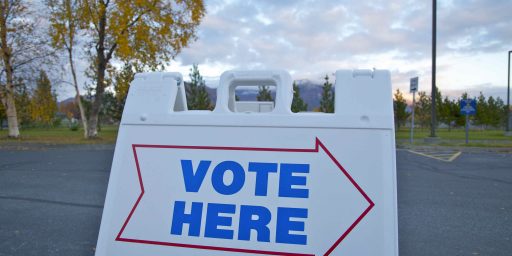
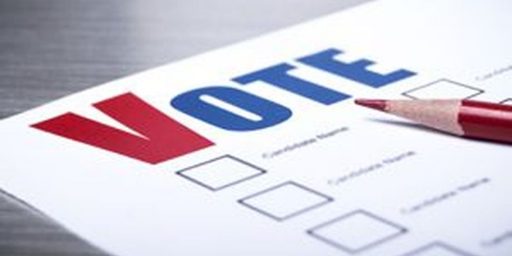
Agreed. The problem as we all know, is that the needed structural reform requires the Constitution be amended and that is impossible.
What I would like to see is the Dems propose a simple amendment, that declares that all citizens have the right to vote with equal access. R’s will have a cow and won’t support it and even if it somehow manages to make through the Senate, ratification is unlikely. But it will put every legislator in the country on record as to whether they believe citizens should have the right to vote.
I don’t see how this gets through the Senate without eliminating the filibuster. If it somehow did, presume most of the campaign finance restrictions would be struck down by the Supreme Court. I don’t see any obvious Constitutional objections to most of the core provisions, since Congress has been issuing rules for federal elections since the late 1800s.
Even apart from the loaded rhetoric, the notion that this gives illegal aliens suffrage is silly. Motor Voter was alleged to do that and didn’t. Ditto duplicate registrations. We have drivers license and social security numbers.
I’ve largely come around on felon voting but understand why people think heinous crimes should come with a loss of certain rights.
@Sleeping Dog: I support that in principle but would almost certainly oppose an amendment crafted in that way, as it would subject every single voting decision to endless litigation.
It also demonstrates how bad faith all the Republican propaganda about “vote fraud” is when after spending six years whining about it, they also repeatedly oppose any attempts to tighten standards on registration, mail balloting, election day balloting, etc.
Not only are they opposing HR1, they are using the Stolen Election lie to push restrictive measures in the states.
You were talking yesterday about bait and switch. I think that the line that we must restrict voting to address the loss of confidence in elections, the loss of confidence that we wholly created, counts.
If this passes it will likely face significant legal challenges that will require the Supreme Court to resolve the issues.
I think we all know what that means in an era where we are in a 6-3 conservative advantage that will remain at least until Clarence Thomas decide to retire. Even if a Democratic President gets to chose his replacement. Even if that happens though it would be cur back to a 5-4 majority. This will keep in place a conservative majority for decades Dee es to come.
About the only upside I can see to the current situation, is that future historians will debate when and how American democracy died instead of when and how the Roman empire fell.
@Kathy:
The when has already been identified. –> December 12, 2000
@James Joyner:
I think where it will fail in the courts on registration is that it sets requirements on how states must manage other systems that have nothing to do with elections. My state voluntarily set things up so that anyone who brushes up against a state function — DMV, unemployment insurance, public assistance, Medicaid — is asked if they wish to register to vote. We accepted that it would cost us at least several million dollars to modify the software in those intake systems. I question whether the federal government can impose that requirement on the states unilaterally.
On the voting side where I believe it will fail is that it leaves states no leeway. Each state must implement both full-fledged in-person and mail voting. No state can say, “We have a long tradition of operating a fair and robust in-person voting system. We will make reasonable accommodations for people who need to vote by mail, but if 50% decide to ask for mail ballots this year things will go sideways.” On the other end are states like mine, where the expectation is that >95% of ballots cast will be distributed by mail, and if 50% of voters show up at the vote centers on election day this year things will go very badly wrong.
@James Joyner:
I appreciate the growth you’re demonstrating, but I’d really like to discuss this in detail (another time, another posting). How do we define heinous? What rights don’t we restore? In many aspects, the cage was tightened up after 9/11, and society has made it much more difficult to to prove/establish/earn a role in society.
@James Joyner:
As @flat earth luddite notes, I guess this all depends on definitions.
But, most felonies aren’t necessarily of the heinous crime nature, or so I would argue.
More importantly, at some point, you have served your debt to society, yes?
There’s a bill coming from Republicans in Georgia that would ban what is known as “line warming,” the practice of having volunteers provide water, snacks, chairs and other assistance to voters in line.
This is the sum of all Republican positioning on voting reform. It’s really that simple.
@Michael Cain:
It requires no-fault mail-in voting such as Florida and other states have had for quite a while now.
@Scott F.:
If lines are so routine and predictable that you have people who want to be line warmers, you have a problem.
But we’ve known about this problem.
If white voters had to feel the pain that black voters do, things would change. Most white voters aren’t overt racists, they just don’t think about it.
@Loviatar:
A valid point.
But if you asked ten historians how and when the Roman empire fell, you ought to get at least 15 different answers.
Gee, how hard is it to vote? I mean seriously, unless you’re just trying to demand unlimited voting by anyone living or dead….or non eligible.
Read between the lines, it’s making voter fraud legitimate.
@James Joyner:
The right to participate is the foundation of a democratic system–without it, it isn’t representative.
Let’s look at a few things:
-Thoughout the 1800s, non-citizen immigrants who had declared intention to become citizens were allowed to vote.
-The importance of “no taxation without representation,” to the Revolution is well known. It’s easy to construct an argument against that, and non-citizen voting rights, because the country and the world have changed.
But that old phrase was dusted off by the Tea Party in 2009, and is the basis for claims about over-regulation and part of the ‘deep state’ conspiracy. The Freedom Caucus is pretty much a re-named tea party.
The point being: if you pay taxes, you should be allowed to vote. But the people who want to make voting more difficult are the ones most closely associated with the slogan; even if it means legitimate voters lose their right.
-For a nation whose founding documents were constructed to constrain centralized national government, America really seems to love prevent people from participating. Then again, not all government was considered bad–states weren’t strictly bound by the Bill of Rights for ~100 years.
Imprisoned for violating an unjust law? We will make sure you have no say in whether the law is unjust. The Constitution was constructed with potential abuses of power in mind. I can’t think of a more dangerous abuse than restricting participation.
-And let’s get to a slightly more abstract point: SCOTUS equates money with speech so that spending limits violate the 1A. But limiting voting is okay?
Voting is the most direct form of speech from a person to government. In comparison, donating money is a tangential form of speech. It’s (at least) two steps removed from the process.
Voter exercises speech directly via the ballot box.
Money is used to motivate voters to the ballot box and influence their decision once they get there.
Voter–>gov (direct voice)
donor–>voter–>gov; or (indirect)
donor–>campaign–>voter–>gov (indirect)
It’s ridiculous to be okay with infringement of the most direct interaction, but disallow infringement on interaction separated by intermediaries.
Even more damning: tying money to speech in the law privileges a small group by giving them a much louder voice in the political process and invites abuse via corruption.
Even from a theoretical perspective it’s absurd. Speech is a natural right. It pre-existed currency and economic systems. Subjugating a natural human ability–one conferred genetically–to a technological abstraction is prima facie illogical.
@Bill :
Oh, go cry somewhere else. It’s damn hard to vote in the country for no real reason; I had to wait a few hours in line and I’m a white girl in a good smaller neighborhood with access and can take a few off my job to do so. My sister couldn’t because she works 3 jobs and I had to cajole her to going since it was “a waste of her free time”. Thank god there were some understanding folks in the line willing to let her jump ahead but it still took 45+ min. I can’t imagine how it would be for someone with kids at home, multiple jobs and looking at a 2+hr wait and a bus ride to boot.
At the VERY least we should have a paid day off for those who vote and free transport for those without cars. Voting is a fundamental American responsibility and everyone, EVERYONE should be encouraged to do their patriotic duty. Whining about “how hard can it be?” is anti-American, @Bill. You commie or something, trying to stop Americans from exercising their freedom?
@Bill:
Prove widespread voter fraud exists before legislating. I’ll give you a hint–you can’t. But by all means, waste your time.
Here is a little reading between the lines for you:
It’s a hugely beneficial for Republicans. If the state legislatures can make it harder to vote, they get obvious electoral benefits.
If they can’t get laws passed, they gain other benefits. First, they extend an issue that makes people like you angry.
Second, they can claim any close election is illigitimate.
Third, individual legislators get to preen, bang the table, and avoid doing anything difficult. Solve real problems? That seems too complicated. Easier to wag your finger at lazy people while doing nothing.
As the mayor’s Chief of Staff in The Wire told the team, “I don’t think any of us wants to go get a real job.”
Hell, Marjorie Taylor Greene’s recent behavior shows that one doesn’t need to read between the lines to see that Republicans just like loafing on the job. She is spending her time forcing pointless procedural votes that will have no impact on legislation.
Ron Johnson forced aides to read a 600 page bill aloud on the Senate floor. I’m sure all the GOP voters were watching C-SPAN taking notes the whole time so they can hear what’s in the bill.
Beats workin’ right?
If the facts aren’t on your side, change the law!
If you can’t win, cheat.
That’s the R mantra.
@de stijl:
This is why I continue to believe that many Republicans believe Democrats must have cheated when they win. The Republicans know that they are throwing every impediment to Democrats voting legally that they can think of, so if they fail it must be because the Democrats cheated.
@Bill: spoken by someone who obviously has never been employed in a job where time cannot be taken off, in a district where lines for voting stretch into the hours. Or has read any of the news reports on what it’s like trying to vote when you’re poor and a minority.
You really that stupid, boy? I guess YES.
@Steven L. Taylor:
To be honest, I was thinking about it from the other direction. Consider Oregon and Colorado. Both states are consistently in the top five when states’ systems are evaluated for security, accuracy, and ease of use. Oregon, for practical purposes, has no in-person voting. Colorado has some: the county I lived in the longest here is roughly 40 miles by 20, has >400,000 registered voters, and three modest voting locations. Already-registered voters are (almost) required to bring their mail ballot with them for disposal before they can get an in-person ballot. In effect, Colorado actively discourages in-person voting. In 2019 Hawaii replaced their voting system with one very much like Colorado’s. Spread across the islands are eight places where in-person voting can be done. Oahu, roughly comparable to the Colorado county I mentioned, has two. As I read HR1, all three states will be required to buy, store, and maintain lots of additional equipment; arrange for space; and staff the kind of in-person system they chose to give up.
@Steven L. Taylor:
@James Joyner:
Thanks, guys. Changes are needed. I’ve thought about this a lot, as I’ve been living the reality since 1981. I’ve some thoughts, but I’ll share them after I’ve trimmed it down to a readable level.